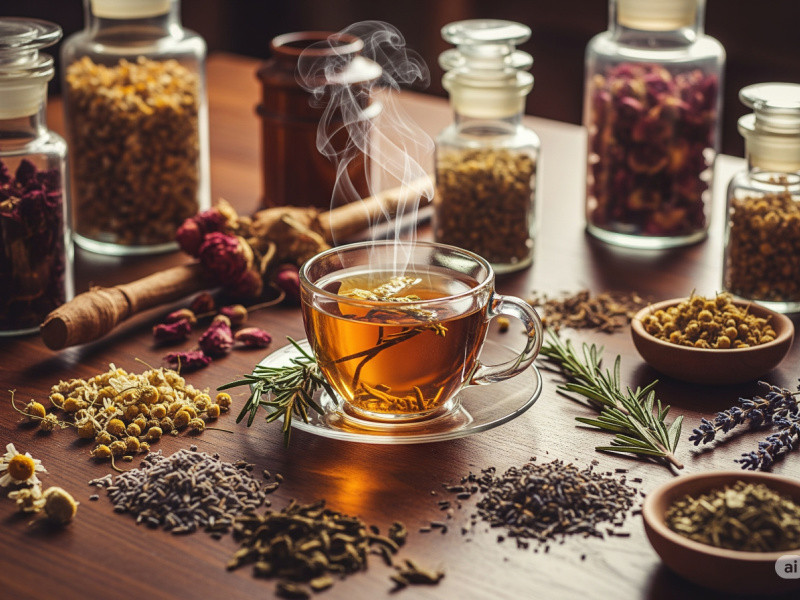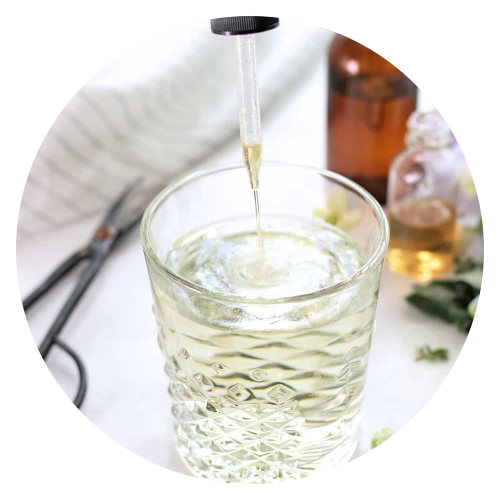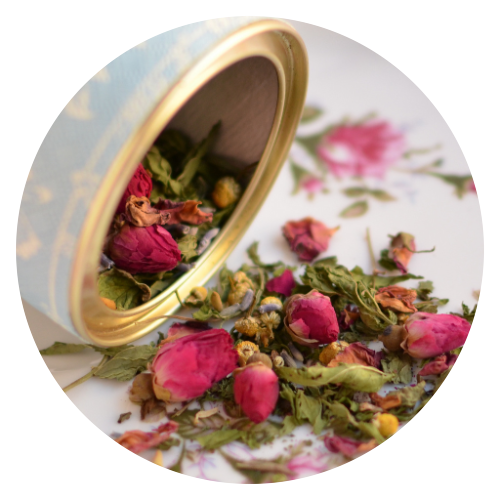It's a beautiful sunny day here in Alabama, and I'm so glad you're joining me! As an herbalist, one of the questions I get asked quite often is "What is herbal tea?" It's a wonderful question, and it opens the door to a world of fragrant, beneficial, and tasty brews!
When most people think of "tea," they immediately picture that comforting cup of black or green tea, maybe even an Earl Grey, or a refreshing oolong. And those are indeed teas, coming from the Camellia sinensis plant. But when we talk about herbal tea, we're venturing into a much broader and beneficial territory!
An herbal tea is essentially any beverage made by steeping in hot water botanicals other than the traditional tea plant itself. I am talking about plant parts like leaves, flowers, roots, seeds, or bark. It’s like inviting God’s given botanical goodness into your mug.
We often call herbal tea "tisanes" in the herbal world, which is just a fancy French word for herbal infusion. But "herbal tea" is perfectly lovely and often the phrase I use myself!
So, what makes an herbal tea so special?
They're caffeine-free (mostly!): This is a big one for many folks! Unlike black or green tea, the vast majority of herbal teas are naturally caffeine-free. This makes them perfect for winding down in the evening, enjoying with children, or for anyone sensitive to caffeine. Of course, there are exceptions (like yerba mate, which is definitely an herbal infusion but does contain caffeine), and there are a few teas that we make for our shop that have added black or green tea, so always check the ingredients!
Herbal tea is packed with plant power: This is where the beauty truly lies. Every herb has its own unique set of beneficial compounds, often dozens of uses for every herb. Chamomile is popular for its calming properties. Peppermint is fantastic for digestion. Ginger can warm you up and soothe an upset tummy. Echinacea is a friend to your immune system! When you steep these plants in hot water, those wonderful compounds are released, and you get to sip on their goodness.
A world of flavors and aromas: Oh, the variety! From the sweet, floral notes of elderflower to the earthy depth of burdock root, the spicy kick of cinnamon, or the refreshing zing of lemon balm, there's an herbal tea out there for every palate and every mood. It's an adventure for your taste buds!
A practice of wellness: For me, making a cup of herbal tea is more than just brewing a drink; it's a God given way of caring for my body, mind, and spirit. The steam rising from the mug, the comforting warmth, the delicate aroma of the plant’s essential oils– it's a moment to pause, breathe, and connect with a part of our many blessings. It's a gentle reminder to slow down in my busy life.
Common "Ingredients" you might find in herbal tea:
Leaves: Peppermint, lemon balm, nettle, raspberry leaf
Flowers: Chamomile, lavender, rose, hibiscus, elderflower
Roots: Ginger, turmeric, dandelion, burdock, licorice
Seeds: Fennel, cardamom, coriander
Bark: Cinnamon, slippery elm, willow bark
Fruits (dried): Rose hips, berries like elderberry, hawthorn, bilberry, chaste tree
So, the next time you hear "herbal tea," I hope you'll think beyond just a simple drink that you find in the coffee isle at the market. Think of it as a nourishing infusion, a gentle remedy, a delightful flavor adventure, and a moment of quiet peace, all from God and his incredible creation of the plant world.
Warmly, Your Herbalist Friend, Stephanie



